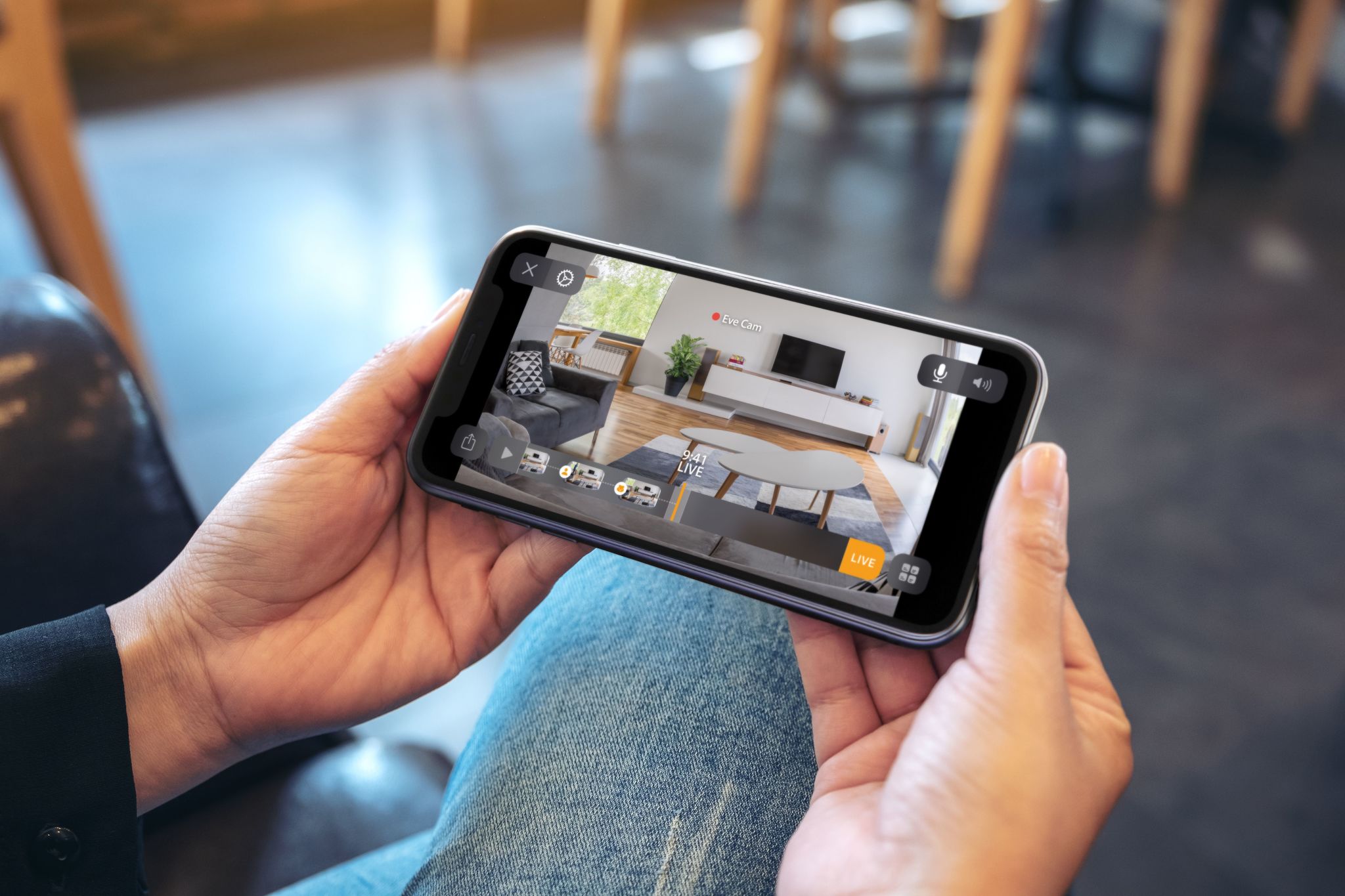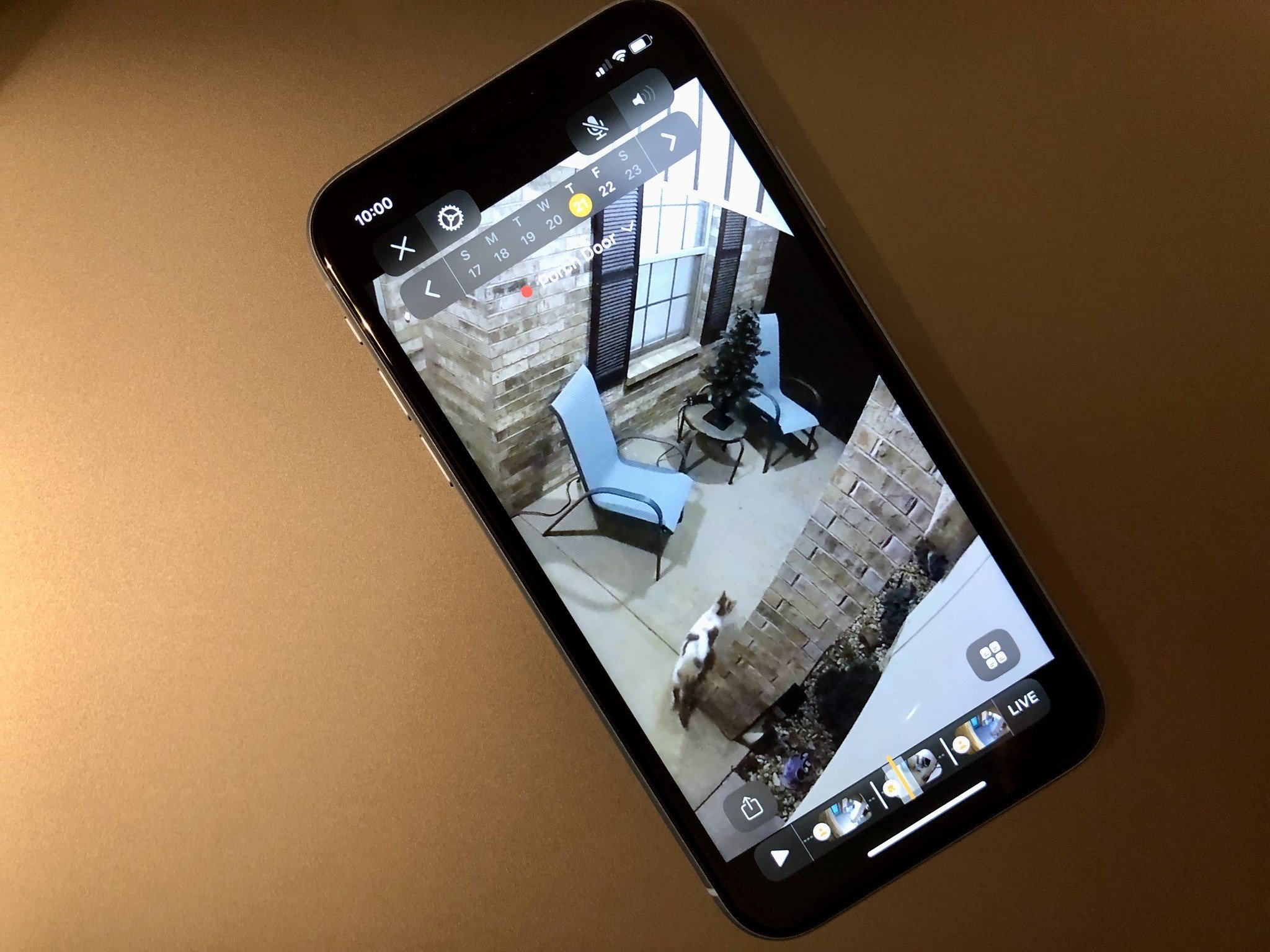HomeKit isn't quite ready to replace traditional security systems, but it's getting closer

iMore offers spot-on advice and guidance from our team of experts, with decades of Apple device experience to lean on. Learn more with iMore!
You are now subscribed
Your newsletter sign-up was successful

An article at Appleosophy a couple of weeks ago posited that a 'Secured by HomeKit' sticker or sign, similar to those offered with ADT and Ring security systems, could be a good idea to fend off would-be intruders.
David Becker writes, "What those ADT signs do is to let a possible intruder or criminal know is that if they go and try their mischief, there's a good chance they're going to get got more easily than a home without ADT."
It would also double up as a marketing opportunity for Apple to bolster its smart home ambitions. "On top of showing that a home is protected with Apple HomeKit products, it could be a good chance for Apple to show the world that it does have a system for adding security systems and related products to its Home app," Becker adds.
The article was prompted by Reddit user u/lukelmiller's home-made 'Secured by Apple HomeKit' sticker that certainly sparked some debate on the HomeKit subreddit, so I wanted to ask some HomeKit experts their thoughts on the current state of HomeKit for security.
"HomeKit is reliable, but still lacks many features to make it an all-in-one solution for a security system," says YouTuber and HomeKit enthusiast Shane Whatley, whose YouTube channel covers everything from HomeKit news and updates to product reviews, buying guides, how-tos, automations, and more. Whatley argues that since HomeKit security systems still must rely on features and automations native to the product manufacturers and their apps, it's not quite a replacement for a dedicated system.
Jon Ratcliffe of HomeKit Authority agrees, stating that HomeKit is not at a point yet where it can be relied upon as a user's only security system. "For HomeKit and external access, you need an active internet connection, power, and a Home hub. If any of these are unavailable, so is your remote access," he adds.
"I think HomeKit's ability to perform as a dedicated security system is the one area that it's lacking the most."
Asked whether a 'Secured by Apple HomeKit' sign would be a good idea, Ratcliffe states that he's "not a fan" of the idea, with Whatley arguing that most people looking to steal or cause harm probably wouldn't recognize HomeKit. "'Protected by' anything just shows that there is a security system in place, and this is just a "last line of defense" deterrent," Whatley adds.
iMore offers spot-on advice and guidance from our team of experts, with decades of Apple device experience to lean on. Learn more with iMore!
Having just set up several HomeKit cameras around my home and in dabbling with HomeKit Secure Video, it became clear that the system is useful for having footage if there was to be a break-in, but it offers little in the way of offering a resolution while a break-in is going on as a traditional live monitoring system would.
"The Abode system has more features often seen in the traditional alarm systems, such as battery backup, cellular backup, options for a monthly professional monitoring subscription," says Whatley. "Everything works great in the Abode app, but I've found many issues with the alarm modes in HomeKit working as you'd expect."
Ratcliffe adds that, though the Abode system has backup systems to counter outages, these do not help with HomeKit. Of course, HomeKit connectivity would be lost in an outage since you need your Home hub to be online for remote access. "However, you could still access remotely via the Abode app if battery backup kicked in and with its 4G connection."
So, what's missing to make HomeKit a viable replacement for traditional security systems? "I would say that it needs to be a full, end-to-end owned Apple delivery," argues Ratcliffe. "It needs to be similar to HomeKit Secure Video that the device maker taps into. So, for instance, Apple would create a service within HomeKit with the option for the device maker to make available a 4G data connection to keep alive remote access."
Whatley thinks that improvements are needed within both the Home app and within HomeKit's ability for devices from different manufacturers to work co-operatively. "HomeKit is a potent platform for creating robust automations," he says. "I also think Apple has done an excellent job at improving the camera features with HomeKit Secure Video over the past two years, but I do think its ability to perform as a dedicated security system, with alarms and sensors, is the one area that it's lacking the most."
"I think what's really missing is the options to configure a security system in HomeKit natively," Whatley adds. "One of the selling points of HomeKit is being able to use and automate all of my smart home products together in HomeKit, regardless of the brand. That doesn't apply to security systems in HomeKit."
For now, HomeKit security devices like cameras, motion sensors, and smart locks make for great additions to your home, if not a full-on replacement for your aging ADT system just yet.
Those new to HomeKit security should go for an Abode kit if "traditional" features like monthly monitoring and cellular and battery backups are high on your list, according to Whatley. However, standalone cameras and sensors from the likes of Aqara make for "a good DIY solution".
Ratcliffe agrees, advising that simple contact sensors on windows and doors around the ground floor are an affordable starting point. A HomeKit smart lock and HomeKit Secure Video camera are also high on his list of recommendations to new users. "It's not perfect, but it's a great solution I use all the time."
What do you think? Do you think HomeKit is capable of replacing your traditional security system? Let us know in the comments.
Adam Oram is a Senior Writer at iMore. He studied Media at Newcastle University and has been writing about technology since 2013. He previously worked as an Apple Genius and as a Deals Editor at Thrifter. His spare time is spent watching football (both kinds), playing Pokémon games, and eating vegan food. Follow him on Twitter at @adamoram.

